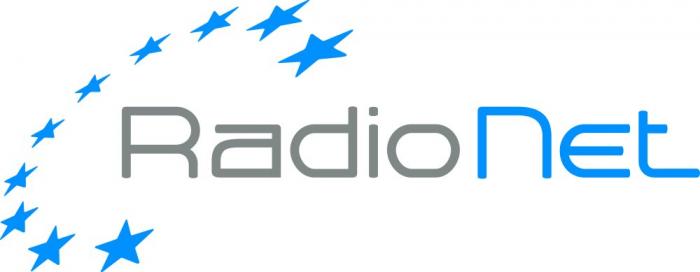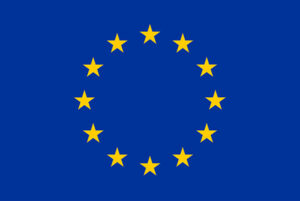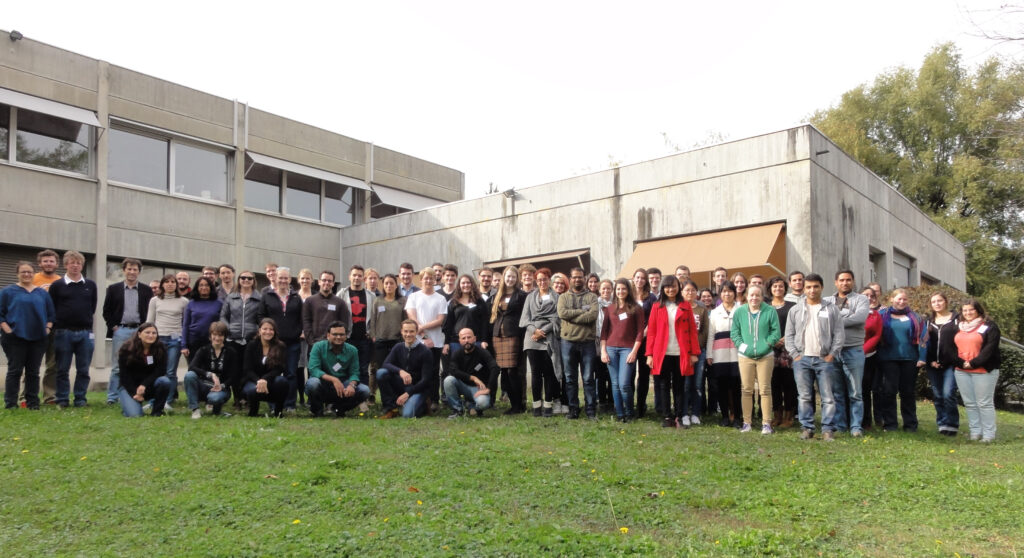The 9th IRAM Millimeter Interferometry School took place from October 10 to 14, 2016 at the IRAM headquarters in Grenoble, France. This edition was aimed at students, postdoctoral researchers, and scientists wishing to deepen their understanding of millimeter-wave interferometry and data reduction methods, with particular emphasis on the NOEMA interferometer.
The program combined lectures on key topics – including the fundamentals of millimeter interferometry, atmospheric phase correction, data calibration and imaging techniques, and the latest NOEMA capabilities – with practical tutorials dedicated to interferometric data reduction. An overview of ALMA was also included, broadening the participants’ knowledge of current millimeter interferometry facilities. This school provided an essential training opportunity for researchers intending to analyse and interpret data from NOEMA or other millimeter interferometers.
Lectures were combined with practical exercises when possible to ensure that participants not only understand the theoretical background but also gain hands-on experience with real data.
This event was supported by the IRAM node of the European ALMA Regional Center (ARC). Registration was free of charge, but participation was limited to 60 attendees. A limited budget was also available to provide travel support to selected participants.
Fundamentals of mm interferometry – Introduction to mm-wave astronomy, antennas calibration, and mm-wave interferometers
- mm astronomy (R. Neri)
- Antennas and their calibration (M. Bremer)
- Interferometry and aperture synthesis (J. Pety)
- Millimeter interferometers (F. Gueth)
NOEMA – Overview, usage, PMS, future Developments, and correlator modes
- NOEMA (R. Neri)
- How to use NOEMA (J. M. Winters)
- PMS (C. Lefevre)
- NOEMA: next steps (F. Gueth)
- NOEMA correlator modes (J. Boissier)
ALMA – Overview and usage
- ALMA & how to use it (E. Chapillon)
Calibration – Principles, atmospheric phase, absolute flux, and real-time methods
- Calibration principles (F. Gueth)
- Atmospheric phase calibration (M. Bremer)
- Absolute flux calibration (A. Castro-Carrizo)
- Real-time calibrations (V. Pietu)
Imaging & data analysis – Imaging techniques, mosaicking, low S/N and uv-data analysis, self-calibration technique, and data calibration pipeline
- Imaging and deconvolution (J. Pety)
- Imaging and deconvolution: mosaiking (J. Pety)
- Low signal-to-noise data analysis (F. Gueth)
- UV plane analysis (M. Montarges)
- Self-calibration (V. Pietu)
- Pipeline (A. Castro-Carrizo)
GILDAS – Overview and tutorials on SIC, GREG, data cubes, Weeds, and Linedb
- GILDAS (J. Pety)
- Tutorial SIC (S. Bardeau)
- Tutorial GREG (S. Bardeau)
- Tutorial Data Cubes (S. Bardeau)
- Tutorial Weeds (S. Bardeau)
- Tutorial Linedb (S. Bardeau)
All presentation files are in PDF format, and the use of their content should be appropriately referenced in academic or research work.
This event had received funding from the European Commission’s 7th Framework Programme (FP7) under grant agreement No 227290 [RadioNet].




